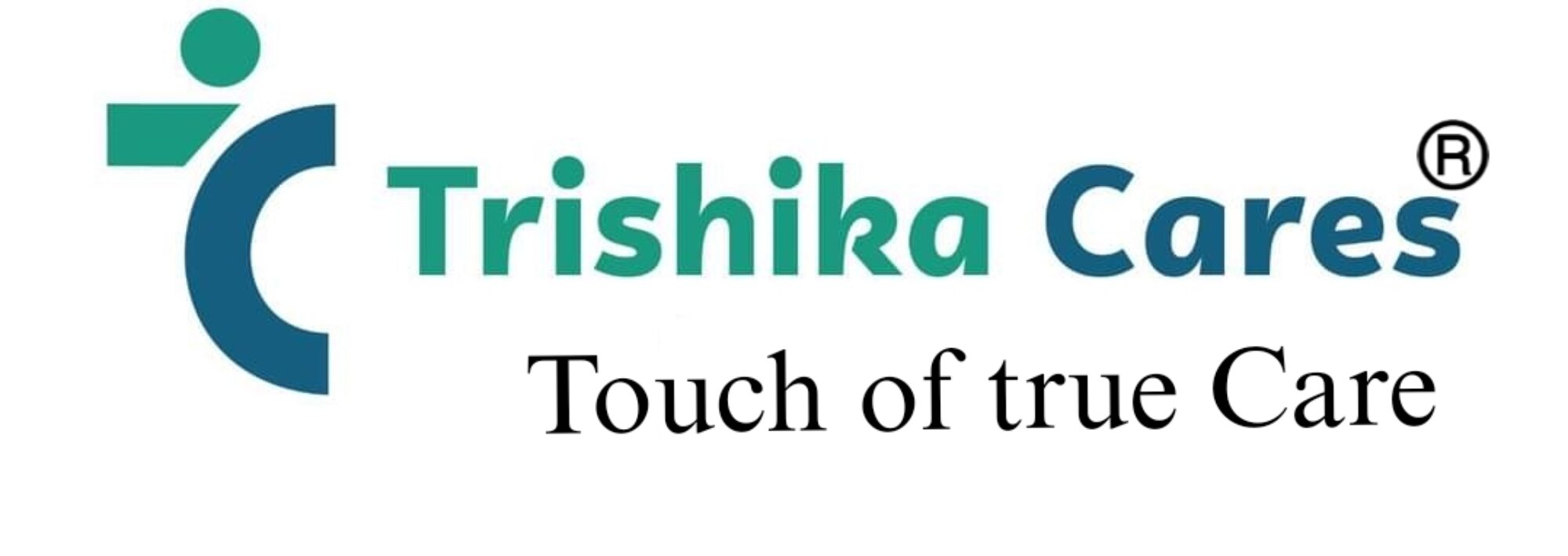Understanding Thyroid Disorders: Causes, Symptoms, Diagnosis, and Treatment
BlogIntroduction
The thyroid is a small, butterfly-shaped gland located in the front of your neck, just below the Adam’s apple. It plays a vital role in regulating metabolism, energy production, and overall body function by producing hormones that control how your body uses energy. Thyroid disorders are common and can significantly affect your quality of life if not managed properly. Understanding thyroid conditions such as hypothyroidism, hyperthyroidism, and other thyroid-related issues is key to maintaining optimal health.
What is the Thyroid?
The thyroid gland produces two main hormones:
- Triiodothyronine (T3)
- Thyroxine (T4)
These hormones regulate various bodily functions, including heart rate, metabolism, digestion, body temperature, and mood. The production of these hormones is controlled by the thyroid-stimulating hormone (TSH), which is released by the pituitary gland in the brain.
Common Thyroid Disorders
1. Hypothyroidism (Underactive Thyroid)
Hypothyroidism occurs when the thyroid gland doesn’t produce enough thyroid hormones. This condition slows down the body’s metabolism, leading to a range of symptoms.
- Causes of Hypothyroidism:
- Autoimmune Disease (Hashimoto’s Thyroiditis): The most common cause, where the immune system attacks the thyroid.
- Thyroid Surgery: Removal of part or all of the thyroid can lead to hypothyroidism.
- Radiation Therapy: Radiation to treat cancer can damage the thyroid.
- Iodine Deficiency: The thyroid needs iodine to produce hormones, and a lack of iodine in the diet can cause hypothyroidism.
- Medications: Certain medications, such as lithium, can affect thyroid function.
- Symptoms of Hypothyroidism:
- Fatigue and weakness
- Unexplained weight gain
- Cold intolerance
- Dry skin and hair
- Depression and memory problems
- Constipation
- Muscle cramps and joint pain
- Slow heart rate
- Diagnosis and Treatment of Hypothyroidism: Hypothyroidism is diagnosed through blood tests that measure levels of TSH and thyroid hormones (T3 and T4). Elevated TSH levels and low levels of T3 and T4 indicate an underactive thyroid.Treatment usually involves taking synthetic thyroid hormone (levothyroxine), which replaces the deficient hormones. With proper medication, people with hypothyroidism can lead normal, healthy lives.
2. Hyperthyroidism (Overactive Thyroid)
Hyperthyroidism is a condition where the thyroid produces too much thyroid hormone, leading to an accelerated metabolism. This condition speeds up many body functions, causing symptoms such as weight loss and a rapid heartbeat.
- Causes of Hyperthyroidism:
- Graves’ Disease: The most common cause of hyperthyroidism, this autoimmune disorder causes the thyroid to produce excess hormones.
- Thyroid Nodules: Overactive lumps or nodules in the thyroid can increase hormone production.
- Thyroiditis: Inflammation of the thyroid can cause the gland to release excess hormones.
- Excess Iodine: Consuming too much iodine can overstimulate the thyroid.
- Symptoms of Hyperthyroidism:
- Weight loss despite increased appetite
- Rapid or irregular heartbeat (palpitations)
- Nervousness, anxiety, or irritability
- Tremors in the hands or fingers
- Increased sweating and sensitivity to heat
- Frequent bowel movements
- Difficulty sleeping
- Swelling at the base of the neck (goiter)
- Diagnosis and Treatment of Hyperthyroidism: Hyperthyroidism is diagnosed through blood tests measuring TSH, T3, and T4 levels. In this case, TSH levels are usually low, while T3 and T4 levels are elevated.Treatment options for hyperthyroidism include:
- Antithyroid Medications: Drugs like methimazole or propylthiouracil help reduce the amount of hormones the thyroid produces.
- Radioactive Iodine Therapy: This treatment involves taking a radioactive iodine pill, which destroys overactive thyroid cells, reducing hormone production.
- Surgery: In some cases, part or all of the thyroid may need to be surgically removed (thyroidectomy).
- Beta-Blockers: These medications don’t treat the underlying thyroid problem but can help manage symptoms such as rapid heartbeat and anxiety.
3. Thyroid Nodules
Thyroid nodules are lumps or abnormal growths in the thyroid gland. Most thyroid nodules are benign (non-cancerous), but some can be cancerous.
- Symptoms of Thyroid Nodules:
- Often, thyroid nodules do not cause any symptoms.
- Large nodules may cause difficulty swallowing or breathing.
- Some nodules produce excess thyroid hormones, leading to symptoms of hyperthyroidism.
- Diagnosis and Treatment of Thyroid Nodules: Thyroid nodules are often found during routine check-ups or imaging tests. A thyroid ultrasound or biopsy may be performed to determine if the nodule is cancerous.Treatment may involve regular monitoring, radioactive iodine therapy, or surgery, depending on the size and nature of the nodule.
4. Goiter
A goiter is an abnormal enlargement of the thyroid gland, which can occur in both hyperthyroidism and hypothyroidism. Goiters are often caused by iodine deficiency, but they can also result from autoimmune diseases like Graves’ disease or Hashimoto’s thyroiditis.
- Symptoms of Goiter:
- Swelling at the base of the neck
- Difficulty breathing or swallowing
- Hoarseness
- Diagnosis and Treatment of Goiter: Goiter is diagnosed through physical exams, blood tests, thyroid ultrasound, and sometimes a biopsy. Treatment depends on the underlying cause and may involve medications, surgery, or radioactive iodine therapy.
5. Thyroid Cancer
Thyroid cancer occurs when abnormal cells grow in the thyroid gland. It is one of the most treatable forms of cancer, especially when caught early.
- Symptoms of Thyroid Cancer:
- A lump in the neck
- Swollen lymph nodes
- Hoarseness or voice changes
- Difficulty swallowing or breathing
- Diagnosis and Treatment of Thyroid Cancer: Thyroid cancer is diagnosed through physical exams, imaging tests (ultrasound or CT scan), and a biopsy. Treatment typically involves surgery to remove part or all of the thyroid gland, followed by radioactive iodine therapy to eliminate any remaining cancerous cells. In some cases, chemotherapy or radiation may be required.
Causes and Risk Factors of Thyroid Disorders
Thyroid disorders can have various causes, including:
- Autoimmune Disorders: Conditions like Graves’ disease and Hashimoto’s thyroiditis occur when the immune system mistakenly attacks the thyroid.
- Genetics: Family history of thyroid disease increases the risk of developing thyroid disorders.
- Iodine Deficiency/Excess: Both too little and too much iodine can lead to thyroid problems.
- Radiation Exposure: Exposure to radiation, especially in the neck region, can damage the thyroid and increase the risk of cancer.
- Medications: Certain drugs, such as lithium, can interfere with thyroid function.
Risk factors for thyroid disorders include being female, being over the age of 60, having a family history of thyroid problems, and having an autoimmune disease.
Diagnosis of Thyroid Disorders
Diagnosing thyroid disorders involves several tests:
- Blood Tests: Measure levels of TSH, T3, and T4 to assess thyroid function.
- Thyroid Ultrasound: Uses sound waves to create images of the thyroid and detect nodules or other abnormalities.
- Thyroid Scan: A radioactive iodine scan shows how the thyroid is functioning and can help identify overactive or underactive areas.
- Fine-Needle Aspiration Biopsy: A biopsy may be taken from thyroid nodules to determine if they are cancerous.
Managing Thyroid Disorders
Managing thyroid disorders depends on the specific condition but generally includes:
- Lifestyle Changes:
- Eating a balanced diet that includes sufficient iodine (found in dairy, seafood, and iodized salt).
- Regular exercise to maintain healthy metabolism and body weight.
- Medications: Synthetic thyroid hormones for hypothyroidism or antithyroid medications for hyperthyroidism.
- Regular Monitoring: Periodic blood tests to monitor hormone levels and adjust treatment as needed.
- Surgery: For cancer, large goiters, or uncontrollable hyperthyroidism.
Conclusion
Thyroid disorders, although common, are manageable with proper diagnosis and treatment. Whether it’s hypothyroidism, hyperthyroidism, or thyroid cancer, early detection and appropriate care can significantly improve the quality of life for individuals affected by these conditions. If you experience any symptoms related to thyroid dysfunction, consult a healthcare provider for timely diagnosis and treatment.

